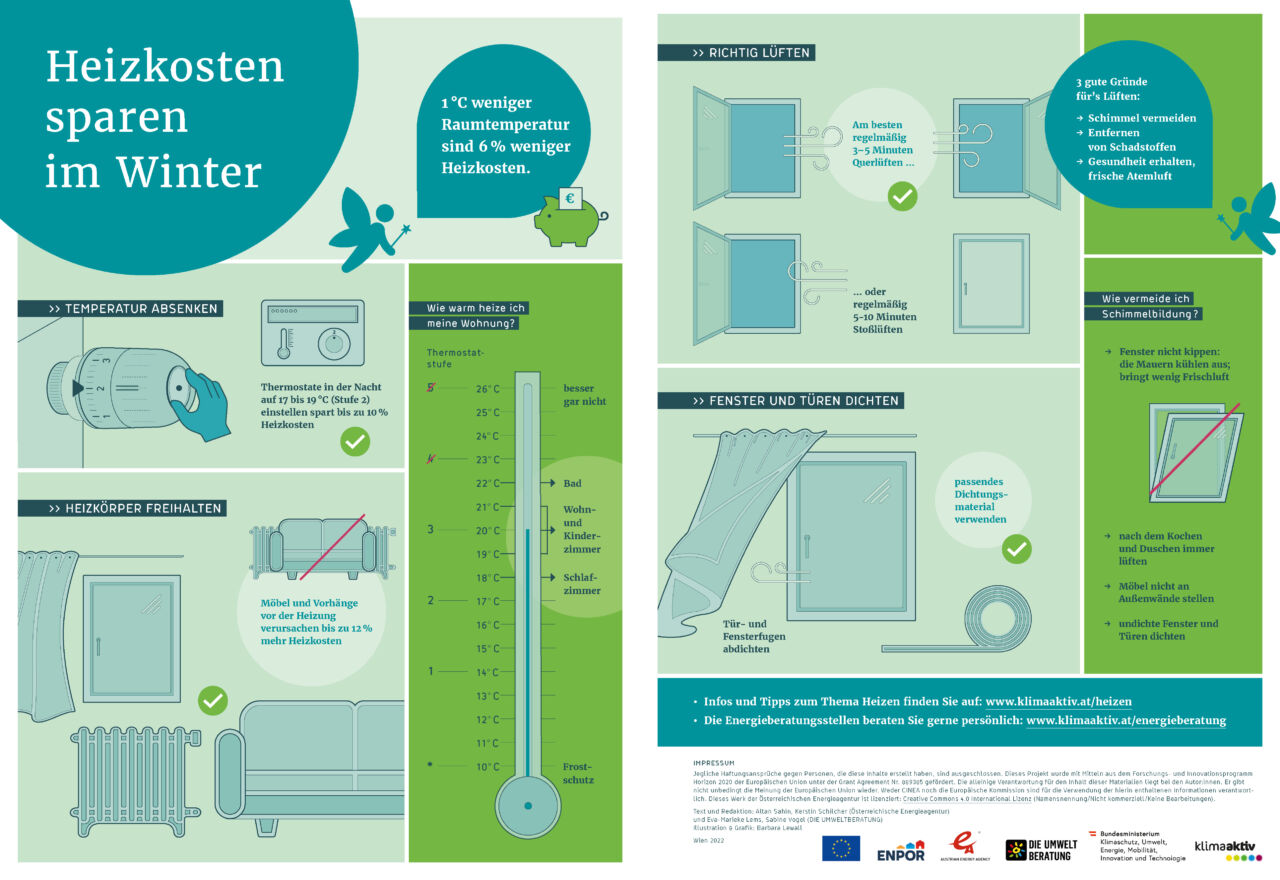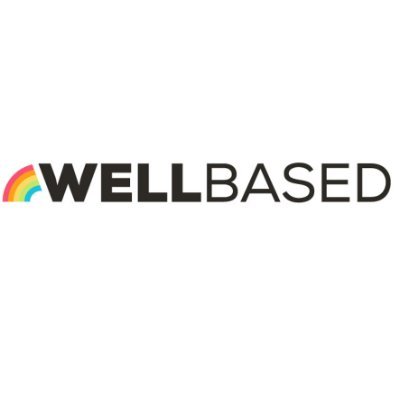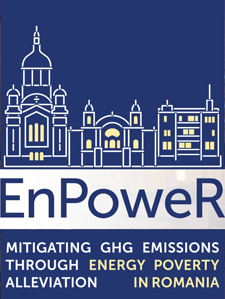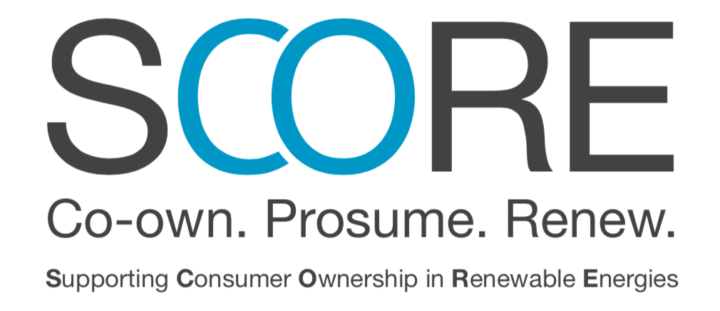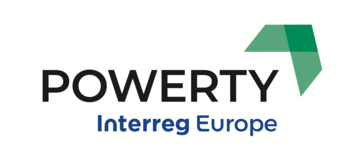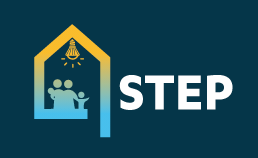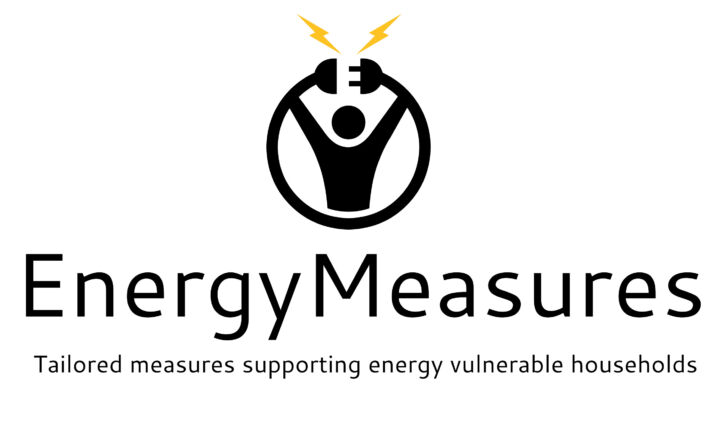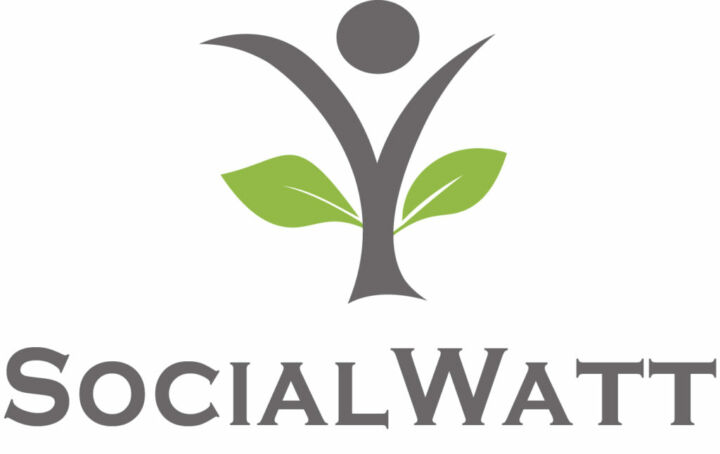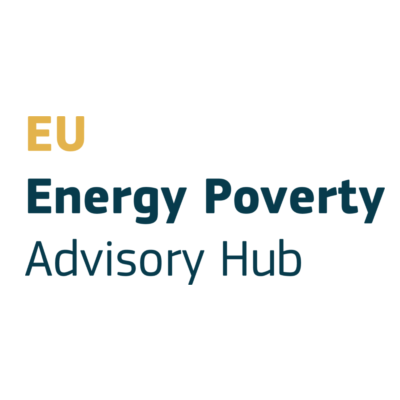Saving energy at home – visual material for homeowners, tenants and landlords in various languages
- ITALIAN – ENEA guidebooks for owners, tenants and building managers
- CROATIAN – DOOR Energy handbook
- GERMAN – Wuppertal Institute and Stromsparcheck guides for heating
- ENGLISH, TURKISH, GERMAN, FARSI, BOSNIAN, CROATIAN, SERBIAN, ARABIC, UKRAINIAN and RUSSIAN – AEA graphics with tips, for heating, cooling and electricity savings
Policy support
ENPOR examined in depth energy poverty policies for the PRS across the EU, and develops a set of policy recommendations for the national level on: creating coherent definitions for and analysing the full impact of energy poverty, the investment capacity of vulnerable citizens and their landlords, developing new models for energy poor households to renovate the existing buildings, and alignment with developments on EU level on energy poverty. Policy recommendations on multilevel governance of energy poverty in the PRS were provided based on the implementation of the ENPOR policies. The assessment of 30 policies on energy poverty revealed their success and failure factors, which formed the basis for adapting and implementing the 10 ENPOR policies in 7 countries. The REACT groups, as key actors, co-designed, informed and supported the policies’ implementation.
Litterature and useful links
- Find on this page interesting documents and publications supporting policy on energy poverty around Europe and acknowledging ENPOR.
- ENPOR submitted policy recommendations to the draft Law on sharing CO2 costs between tenants and landlords in Germany: read the article in English – download the paper (German)
Briefings
- Best practices for reaching out to tenants in the Private Rented Sector
- Offering energy advice to low-income households: best practices
- Examples from quantifying the split-incentive problem in the private rented sector at national level
- Methodologies and tools to quantify the split incentive
- Energy communities to alleviate energy poverty
Final ENPOR policy work (see more below in the reports)
- ENPOR policy recommendations brochure and graphic (EU)
- Policy report on the gender dimension in energy efficiency policy support and means to address it (and infographic)
- Policy outcome fiches per country
- Policy recommendations paper on setting up energy efficiency policies (D5.4)
Reports and findings
Research, capacity building, and stakeholder engagement work
- Report on energy poverty in the Private Rented Sector – overview and framework (D2.1)
- update (D2.6, 2023)
- Structural factors impacting energy policies
- Energy Poverty Dashboard(D2.4)
- Energy Poverty Dashboard user guide (D2.5)
- update (D2.9, 2023)
- Monitoring framework (D3.3,2022), and outcomes (D3.6, December 2023)
- Engagement strategies and periodic updates of the REACT groups for each support scheme (D4.1, updated in 2022 as D4.6 )
- final version (2023, D4.7)
- Capacity building material (report, D4.3, update D4.8) and proceedings on the capacity building activities (D4.4, July 2023)
Policy work
- Analysis and assessment of existing policies in the private rented sector (D2.2)
- update (D2.7, 2023)
- Proceedings and material from the EU level events and policy support actions (2021)
- Report on individual energy efficiency policies for energy poverty (D3.2, AEA, June 2021)
- update (July 2023, D3.5)
- Working Document with guidelines on setting up policies according to best practices and country-specific circumstances (D3.1, CRES, 2021)
- final version (D3.4, 2023)
- Policy report on the gender dimension in energy efficiency policy support and means to address it (D5.5)
- Pilot Outcome fiches – Analysis of the policies’ outcomes (D5.2)
- Overview of key findings and inspiring cases (D5.3)
- Policy recommendations paper on setting up energy efficiency policies (D5.4)
- Recommendations for replicating best practices for energy poverty in the private rented sector (D5.7)
- Proceedings and material from the EU level events and policy support actions (D4.9)
Communication, dissemination and exploitation-related reports:
- Replicating REACT groups, documentation and guidelines (D4.2, 2023)
- Replication Plan on the possible ways of upscaling best practices (D5.6, July 2023)
- Exploitation and dissemination plan (D5.1),
- update October 2022 (D5.8)
- Summary of proceedings and outcomes from ENPOR events (D6.5)
- Project identity (D6.2)
- Project website (D6.3) and final update (December 2023)
- Summary of printed and digital materials (D6.4 + update, D6.7 + Final update D6.8)
ENPOR assessed 30 best practices on energy poverty in the PRS, leading to the development of the Energy Poverty Dashboard, which can recognise and address hidden energy poverty with specific policies.
Scientific publications
- How to improve energy efficiency policies to address energy poverty? Literature and stakeholder insights for private rented housing in Europe (2022)
- The Long-Term Effects of Using the Energy Box on Energy Poor Households in the Private Rental Sector (2022)
- Shining a light on energy poverty in the European private rented sector (2022)
- The Diversity Penalty: Domestic energy injustice and ethnic minorities in the United Kingdom (2022)
- Injustices at the air-energy nexus (2022)
- Decarbonisation of the Polish residential sector between the 1990s and 2021: A case study of policy failures (Energy Policy, 2022 – not yet open access)
- Energy Justice Handbook (2022, restricted access)
- Just transitions: A political ecology critique (Antipode) (2022)
- Energy and labour: Thinking across the continuum (Progress in Human Geography, 2022)
- Mapping European projects- Energy citizenship and energy poverty (ENPOR included, 2022)
Videos and graphics
- Project final poster
- Final event recording
- Short video tour of the Energy Poverty Dashboard
- Video recording of the Energy Poverty Dashboard launch
- Discover ENPOR in less than 20 minutes!
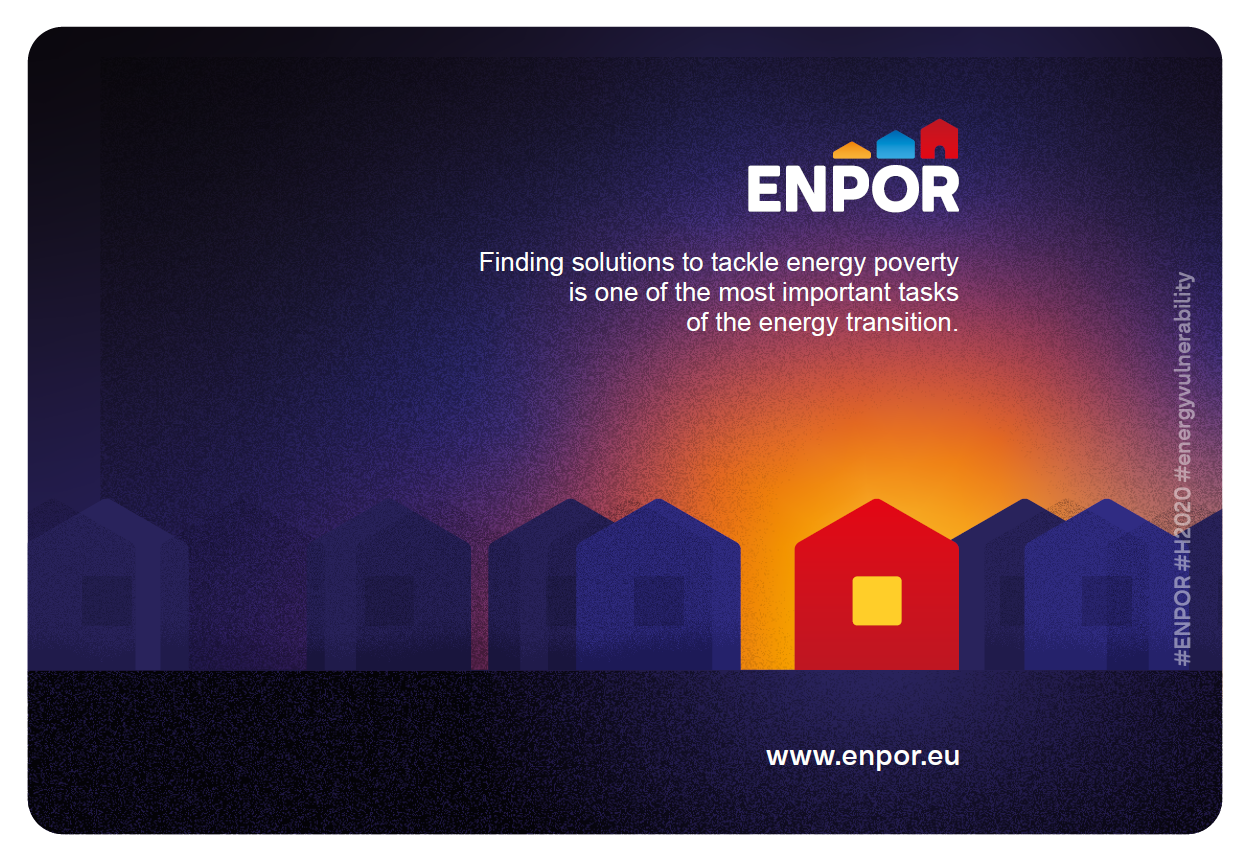
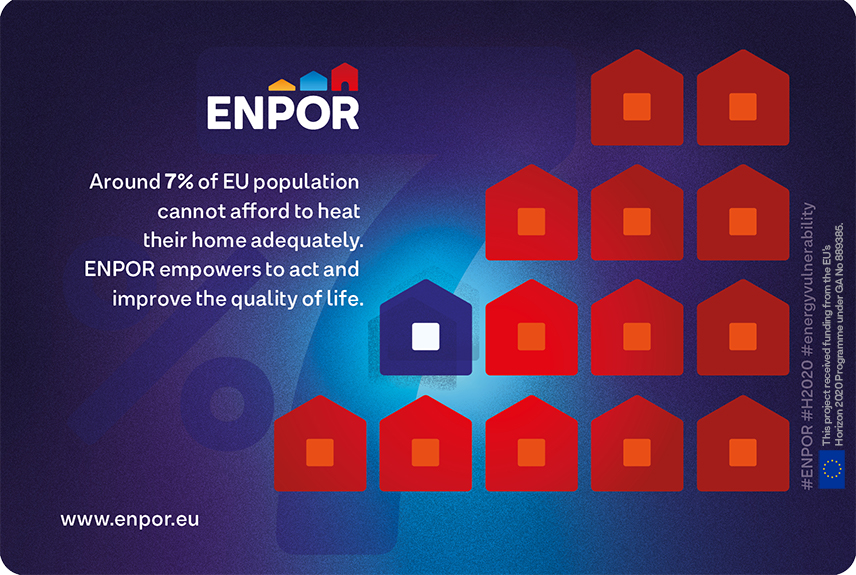

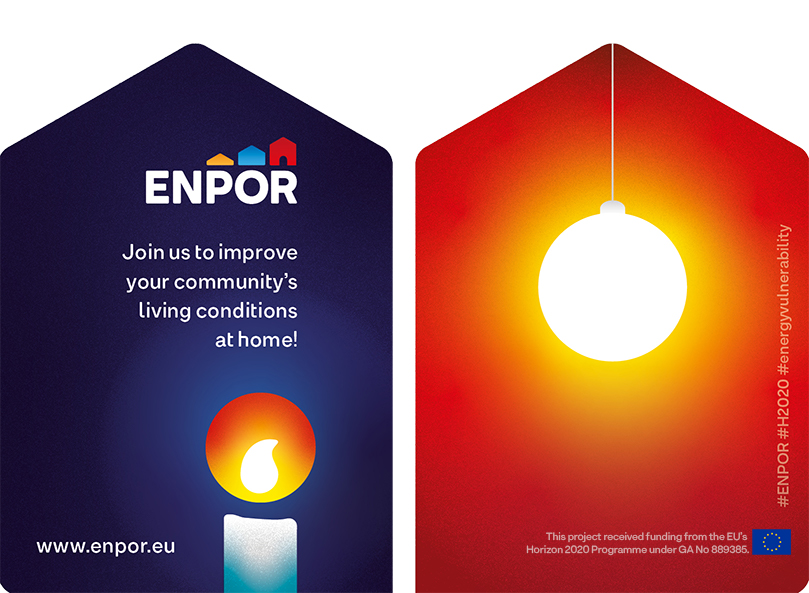
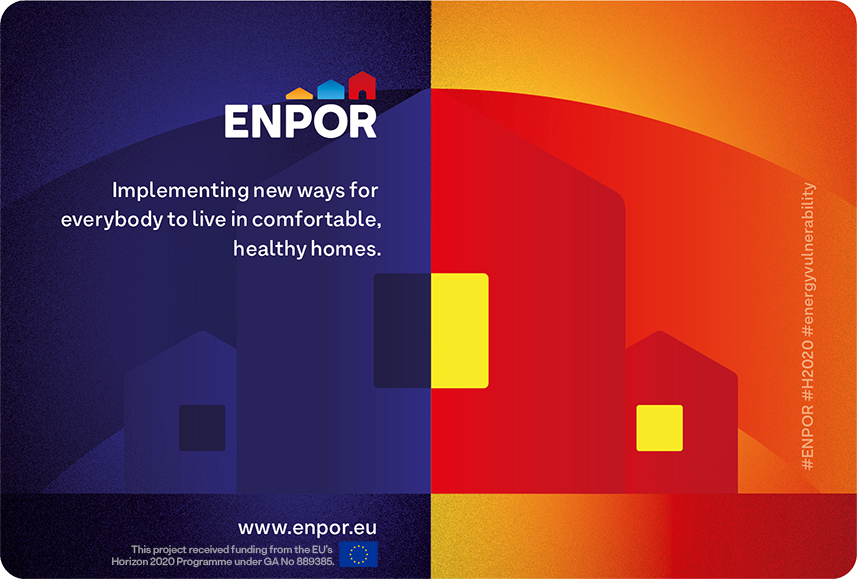
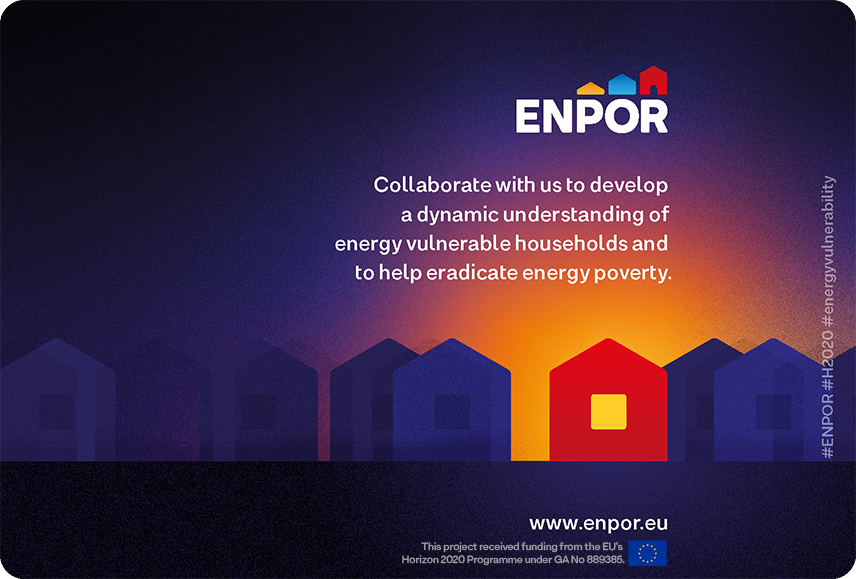
Sister projects, synergies and knowledge-sharing
ENPOR is building synergies with some projects – check their results, we know we will!

